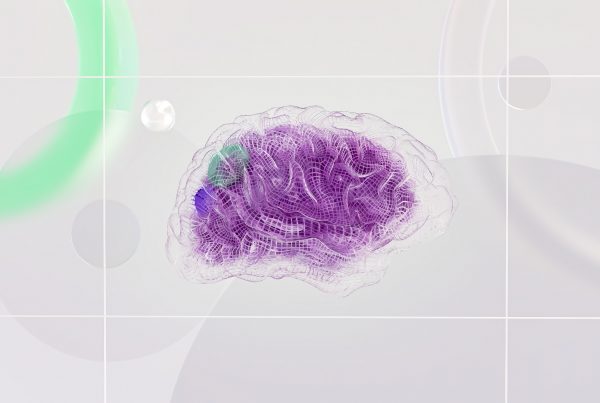Alcohol and drug addiction are often regarded as the most extreme forms of addiction, triggering long-lasting changes to an individual’s brain and behavior. Yet, it is essential to understand that there are other types of addiction just as concerning as substance addiction: process addictions. Simply put, a process addiction, also known as a behavioral addiction, is characterized by an uncontrollable impulse to engage in a behavior despite the consequences it may bring to an individual’s life. Moreover, understanding process addiction and how it can impair brain and behavioral functioning is necessary for effectively overcoming it throughout long-term recovery.
At CCM, we are dedicated to helping individuals and families achieve lasting healing from mental health disorders and addictions – including both substance and process addictions. We offer intervention, intensive case management services, coaching, wellness guidance, and more to meet our clients where they are on their recovery journey.
Substance Addiction vs. Process Addiction
The National Insitute of Mental Health (NIMH) defines substance use disorder (SUD) as “a treatable mental disorder that affects a person’s brain and behavior, leading to their inability to control their use of substances like legal or illegal drugs, alcohol, or medications. Symptoms can be moderate to severe, with addiction being the most severe form of SUD.” To summarize, substance addiction – or an addiction to alcohol or other drugs – is the most severe form of SUD, characterized by lasting changes to brain structure and functioning that trigger uncontrollable urges to engage in recurrent substance use.
Contrary to common misconception, substance addiction does not develop as a result of moral weakness or a lack of willpower. There are many risk factors – such as trauma, anxiety, and experiences of great loss, for example – that may make an individual vulnerable to using alcohol and other drugs. While an individual’s initial decision to engage in alcohol or drug use may be voluntary, recurrent substance use can impair their ability to exert self-control over their use. Moreover, as NIDA explains, “This impairment in self-control is the hallmark of addiction.”
Yet, despite what some may believe, substance addiction and process addiction aren’t all that different. As a publication from the American Journal of Drug and Alcohol Abuse explains, “The essential feature of [process] addictions is the failure to resist an impulse, drive, or temptation to perform an act that is harmful to the person or to others.” Similar to substance addiction, the failure to resist impulse is a direct result of recurrent engagement in the specific behavior and the associated impact of engagement on brain structure and functioning.
Although process addiction can develop from any behavior, some types of process addictions are more common due to their universal experience of informing pleasure and gratification in the brain. Some of these include:
- Sex addiction
- Gambling addiction
- Shopping addiction
- Internet addiction (characterized by “doomscrolling”)
- Video gaming addiction
- Work addiction
Process Addiction: Understanding the Formation of Habits and Patterns in the Brain
Both substance addiction and process addiction impair a variety of important brain areas and circuits that are otherwise responsible for establishing and sustaining wellness. To fully understand process addiction, however, it is necessary to shed light on the brain areas associated with the formation of habits and patterns.
Reward Circuit: The Basal Ganglia
The first of these brain areas is the basal ganglia, a key node of the brain’s “reward circuit.” This circuit works to produce feelings of reward or pleasure by motivating certain behaviors as well as forming habits and routines. In healthy individuals unaffected by substance use or other process addiction, the basal ganglia motivate them to engage in healthy behaviors like eating, socializing, and having sex as a means of experiencing pleasure.
Yet, these behaviors (as well as other unhealthy behaviors that may bring about feelings of pleasure, like substance use) can quickly over-activate the reward circuit. With time and repeated engagement in an activity, the circuit will adapt to the behavior, thus diminishing its sensitivity. As a result, the circuit will motivate continued engagement in the behavior at greater intensities in efforts to experience pleasure.
Another key player in the brain’s reward circuit is dopamine, a neurotransmitter that, when surges, causes us to feel pleasure and satisfaction. Surges of dopamine also serve as a warning signal for our brain to remember something, which, as explained by NIDA, “causes changes in neural connectivity that make it easier to repeat the activity again and again without thinking about it, leading to the formation of habits.”
The Prefrontal Cortex
Another brain area impaired by process addiction is the prefrontal cortex. Working alongside the basal ganglia, the prefrontal cortex is responsible for exerting self-control over impulses as well as powering the ability to think, plan, and make decisions. In other words, this brain area helps an individual consider the short- and long-term impacts (and consequences) of engaging in a specific behavior, as well as checks the severity of an urge to engage in a behavior when it could otherwise be harmful for their well-being. For those impacted by process addiction, an impaired prefrontal cortex may inhibit their ability to fully think through their decisions and anticipate potential future consequences.
Process Addiction in Summary: Why Overcoming Habitual Behaviors Isn’t as Simple as It Seems
As one can see, substance addiction and process addiction share many similar characteristics, both affecting the brain in similar ways. This helps to shed light on the fact that breaking habits is not merely as simple as stopping a behavior; rather, breaking habits requires a long-term commitment to lasting behavior change and lifelong motivation in reversing brain changes caused by addiction. Furthermore, individuals must utilize professional treatment and support to achieve lasting abstinence and recovery from process addictions. We at CCM can help.
You may be under the misconception that the impact of process addiction is not as severe as the impact of substance addiction. Yet, both process addiction and substance addiction impair brain areas responsible for healthy and sustainable functioning in daily life. By understanding how process addiction uniquely affects the brain, you can better understand why it is undeniably challenging to overcome habitual behaviors – regardless of how harmful they may be to your health. At CCM, we provide holistic behavioral health solutions to individuals struggling with mental health, substance use, and other behavioral concerns. We offer a wide range of services and interventions aimed to meet each client where they are on their journey to recovery. Call (855) 467-3226 today.



